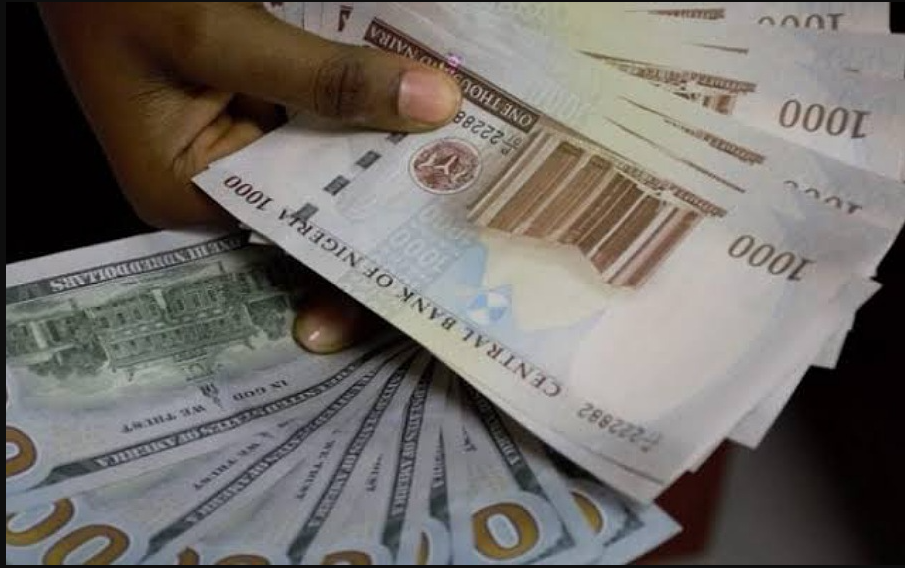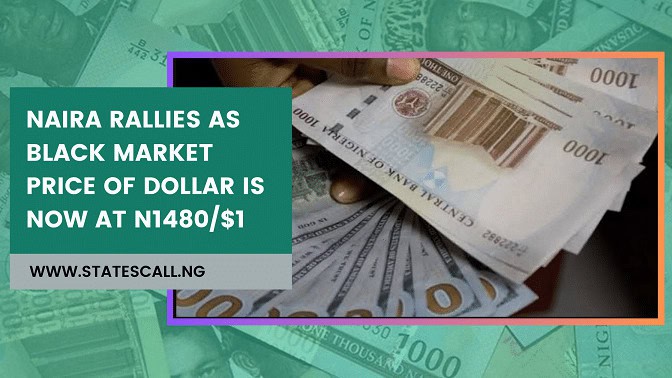This post may contain affiliate links. Read our disclosure policy.
In a surprising turn of events, the Naira rallies as the black market price of the dollar is now at N1480/$1. This significant shift in the exchange rate has caught the attention of economists, businesses, and individuals alike.
Understanding the factors behind this rally and its potential impact on Nigeria's economy is crucial. This article delves into the reasons behind the Naira's recent performance, examining both local and global influences.
Whether you're a business owner, an investor, or simply concerned about your purchasing power, this comprehensive analysis will provide you with the insights you need to navigate this dynamic financial landscape.
Black Market Price of Dollar

On the black market or parallel market, dealers were offloading US dollars due to poor demand, causing the dollar rate to plummet to N1,480.
Compared to Tuesday's trade of N1,570 for every dollar, the naira has increased 6.08 per cent in less than twenty-four hours with the current exchange rate. On the black market, the value of the naira versus the dollar has decreased by 23.31 per cent from the lowest rate of N1,480 as of June 10, 2024.
Because demand in all markets continued to outrun supply, Nigerians had to contend with a month-long depreciation of the naira. The currency rate also declined on the black market, dropping from N1215 to N1480 to the dollar, or a 17.3% depreciation month to date.
Despite experts' hope that the apex bank's new FX guidelines will shore up dollar supplies from commercial banks and stabilize the naira in the short term, volatility remains high. However, market observers believe it is still early days.
In this article, we will discuss the reasons behind the naira depreciation. According to market observers, the recent decrease is due to a persistent increase in demand for the US dollar that began in early January.
Below are the key highlights:
- A substantial percentage of the increased demand is due to enterprises actively replacing inventory or acquiring raw materials, resulting in a greater need for foreign exchange.
- Individuals studying abroad have also contributed significantly to the demand for dollars.
- This tendency is most likely related to the necessity of tuition payments and other educational expenses.
- The departure of Nigerians residing overseas, particularly after the holiday season, has contributed to the increased demand for foreign money.
- The flight of individuals from the United States and other foreign jurisdictions has had a significant impact on the parallel market.
- International students are busy building up their foreign exchange reserves in anticipation of forthcoming tuition fees and other financial commitments as schools abroad resume sessions. Students are also obtaining money for extracurricular activities like holiday allowances.
There are worries about possible economic repercussions as the naira's value vs the US dollar has reached an all-time low due to the extraordinary decline.
To restore stability, improve transparency, increase supply, and encourage price discovery in the Nigeria Autonomous Foreign Exchange Market, several FX reforms have been implemented.
These include unifying the foreign exchange market, promoting a willing buyer-willing seller market, eliminating all margin limits for remittances made through the International Money Transfer Operator (IMTO), introducing a two-way quote system, and implementing extensive changes in the Bureau De Change (BDC) segment of the market.
A recent circular from the Central Bank of Nigeria (CBN) addresses allegations of excessive foreign exchange hoarding and speculation by Nigerian banks. A new set of instructions intended to lower the risks connected to these behaviours is introduced in the circular.
To protect the financial system and advance economic stability, the CBN has taken a strong stand against speculative activity in the banking industry.



